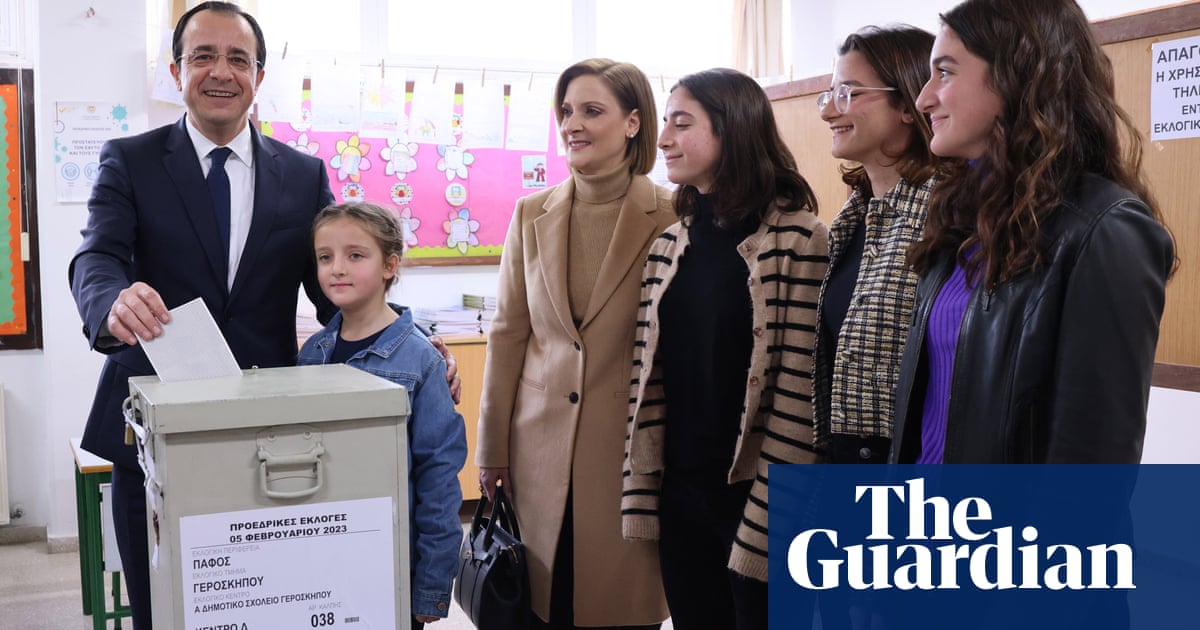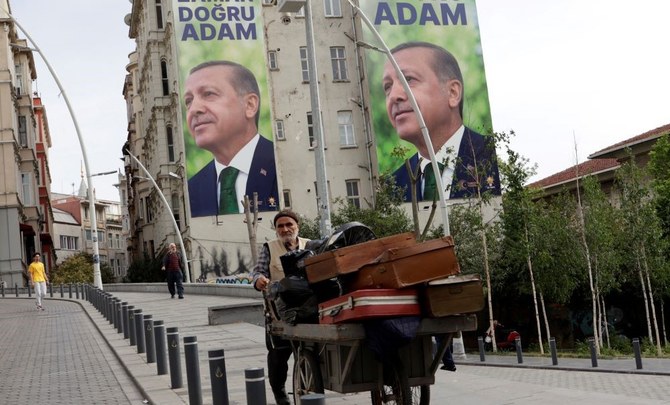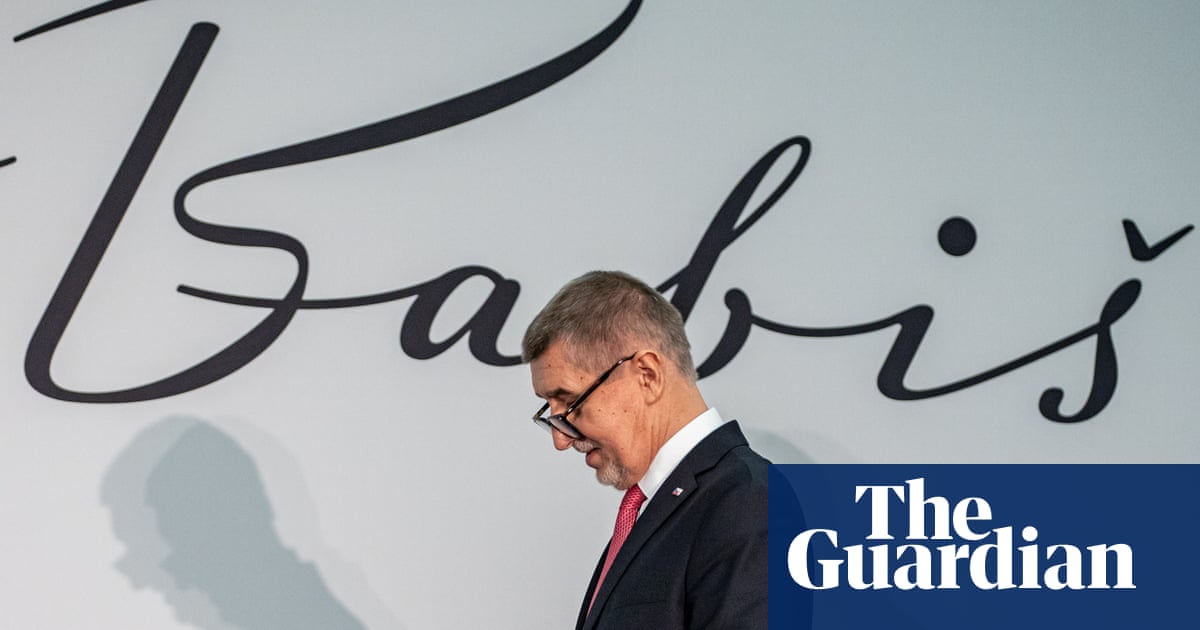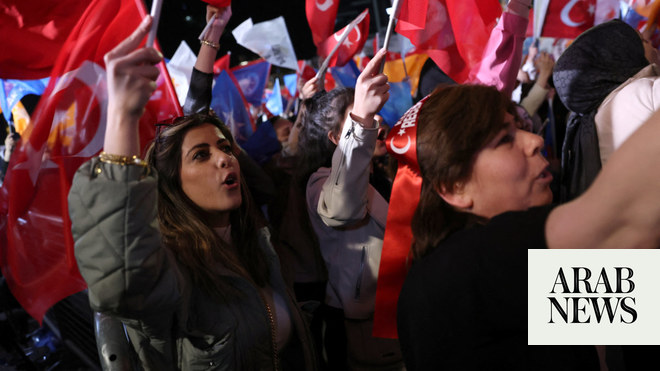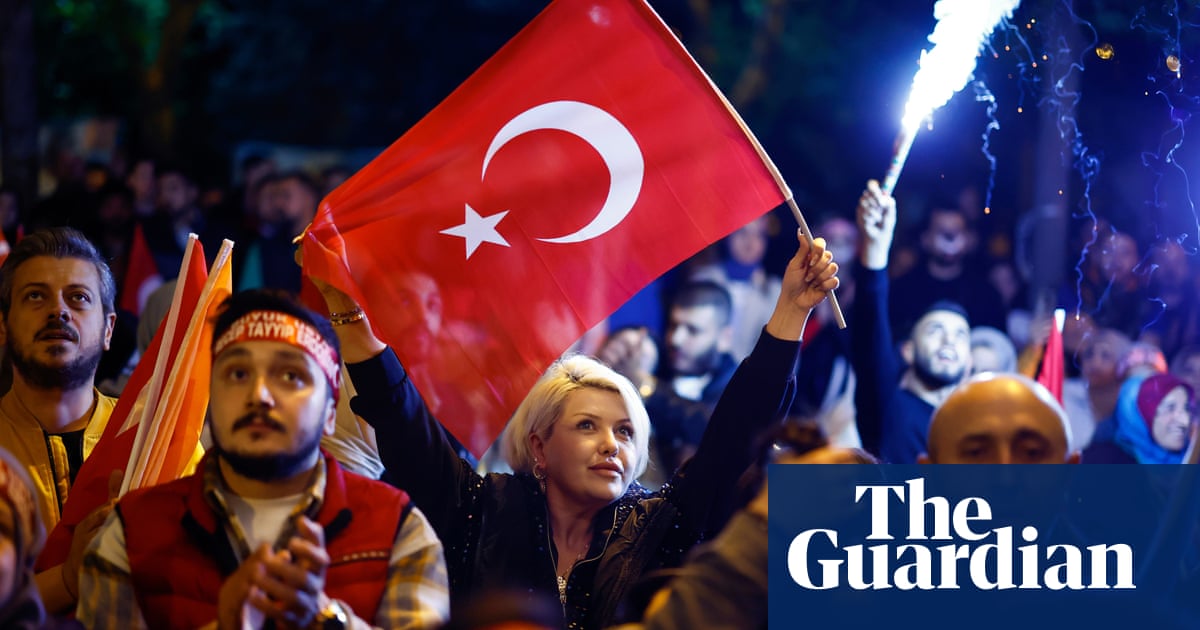
Turkey’s presidential election is going to a runoff after Recep Tayyip Erdoğan comfortably outperformed his chief rival, Kemal Kılıçdaroğlu, but just failed to clear the 50% vote threshold needed to avoid a second round.
The 69-year-old conservative incumbent confounded pollsters’ predictions and his secular rival to win the first round of the country’s pivotal election, scoring 49.51% against Kılıçdaroğlu’s 44.88%, with a small number of overseas votes left to count. The runoff will take place on 28 May.
Polls and observers had predicted an advantage if not an outright victory for Kılıçdaroğlu, 74, but as the final results from Sunday’s election were announced it became clear Erdoğan had defied expectations, seizing a majority – along with his nationalist coalition partners – in parliament and forcing a second-round vote in the presidential race.
As the opposition scrambled to process what for them was a long and difficult evening in which they repeatedly claimed to be in the lead, the six-party coalition that had banded together in the hope of defeating Erdoğan appeared ready to fracture as they attempted to regain momentum before the runoff.
Kılıçdaroğlu in particular was under pressure to adapt quickly to a nationalist groundswell of support signalling a further rightward shift in Turkey’s politics, which granted the ultranationalist presidential candidate Sinan Oğan 5% of the overall vote and empowered far-right parties in parliament.
A voting observation mission by the Organization for Security and Cooperation in Europe said political participation was high and voters had a choice between true political alternatives, “but the incumbent president and the ruling parties enjoyed an unjustified advantage, including through biased media coverage”.
They added: “The campaign itself was competitive and largely free for most contestants but characterised by intense polarisation, and marred by harsh rhetoric, instances of misuse of administrative resources, and the pressure and intimidation faced by one opposition party.”
Kılıçdaroğlu tried to appear defiant, releasing a short video that showed him passionately banging on a table and declaring “Here I am! Here I am! You’re here too. I swear to God I will fight till the end. Here I am!” Investors appeared less convinced, with the main Turkish stock exchange index down 2.5% after initially falling more than 6%.
The opposition had expected to benefit from voter anger at Turkey’s economic crisis, after Erdoğan’s unorthodox policy of low interest rates sent the lira plunging and inflation soaring to hit 85% last year.
A slow government response to earthquakes that killed 50,000 people across Turkey and Syria in February had also been expected to sway voters. But Erdoğan successfully rallied conservative support and is thought likely to extend his rule into a third decade.
“The president is likely to ride his strong approval rating, surprise win in parliament, and incumbency advantages to secure re-election,” said Emre Peker, of the Eurasia Group consultancy.
The main opposition Republican People’s party (CHP) attempted to save face despite unexpectedly falling behind in both the parliamentary and presidential votes. “The elections held yesterday showed that Erdoğan could not get a vote of confidence from our nation,” said a CHP spokesperson, Faik Öztrak. “For the next 15 days, we will do everything to bring rights, law and justice to this country. The will of our nation is above everything else. We will definitely win in the second round. [Our] alliance will take the lead. We will win. The winner will be democracy, the winner will be Turkey.”
Amid questions about why Kılıçdaroğlu and his coalition did not manage to secure a majority in parliament or successfully capitalise on voters’ criticisms of Erdoğan, observers noted a rightward shift in Turkish politics.
“During the campaign period there was a lot of speculation about an opposition undercurrent that might push Kılıçdaroğlu above the 50% mark in the first round. We now know that the colour of this undercurrent was conservative and nationalist. Very few opinion polls had captured that,” said Berkay Mandıracı, of the International Crisis Group.
Oğan, an ultranationalist who ostensibly ran as a spoiler candidate to promote his fiercely anti-refugee policies despite Kılıçdaroğlu also pledging to deport Syrian and Afghan refugees, was triumphant after the vote.
“We said the same thing from day one … Turkish nationalists will be the determinant of this election, the elections will go to the second round,” he told Turkey’s Fox TV. He added: “We are little short of our expectations. Our expectation was at least 11-12% [of the vote.] But if we were not in the election, President Erdoğan would be giving a balcony speech right now.”
Oğan’s voters were left weighing up what to do in the second round of voting. Mert, 29, who defined himself as “a nationalist but not racist,” while boxing up cakes in a bakery in Erdoğan’s home district of Kasımpaşa, said he was unconvinced by both Erdoğan and Kılıçdaroğlu.
“Erdoğan let in refugees,” he said. “But the biggest problem with Kılıçdaroğlu is that he stands with the HDP [the majority Kurdish Peoples’ Democratic party, whose leader Selahattin Demirtaş backed Kılıçdaroğlu from prison].”
Kılıçdaroğlu’s unusual outreach to leftwing Kurdish voters as part of a broad alliance vying to defeat Erdoğan after two decades in office saw him given a warm welcome in majority-Kurdish towns in eastern Turkey, and bolstered his vote in the presidential election.
“To secure a victory in the runoff, Kılıçdaroğlu will need to find a way to appeal to ultranationalist voters while at the same time maintaining his support among HDP-supporting Kurds. This is no easy stretch,” said Mandıracı.
Oğan told Reuters on Monday that he would only consider backing Kılıçdaroğlu if no concessions were made to the HDP.
Critics of Kılıçdaroğlu also quickly came to the fore, loudly suggesting that he should resign as leader before the second round. “He should resign today. He says that Erdoğan lost votes. We are the losers. He should immediately resign from the CHP presidency,” said Mehmet Sevigen, a former CHP official.
Members of Kılıçdaroğlu’s six-party opposition coalition largely fell silent the day after the vote as they struggled to regroup, contemplating the challenge of motivating their supporters to turn out a second time amid the heavy setback.
“Today a deep sense of defeat and disappointment prevails among opposition voters. Mobilising them again will be a challenge for Kılıçdaroğlu and his alliance partners,” Mandıracı said. “For now at least, the momentum appears to be in Erdoğan’s favour.”




